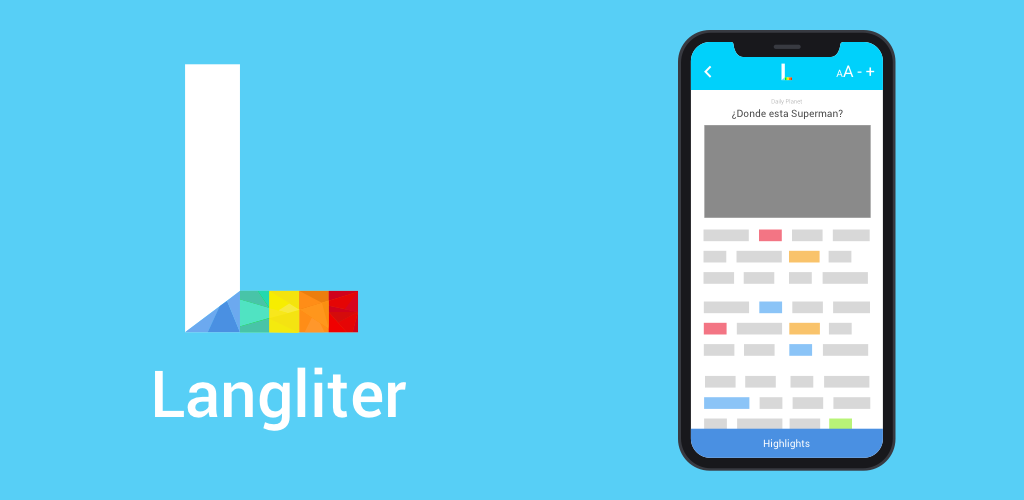
Origins
Over three years ago I began work on an app that would eventually become Langliter. I needed a smarter way to build my Spanish vocabulary in a limited amount of time each day. Like many long-term language learners, I had reached a point in my studies where I was too advanced for most popular apps, but still a long way away from claiming advanced proficiency. I fell into the trap that many people do in thinking that casually reading and watching material in a language was sufficient to make meaningful progress. If I had the time and dedication to spend more than an hour a day engaging with Spanish material, then this approach might have been more effective. Given my time constraints, what I needed was a quick way to identify words and concepts that I struggled with and a way to consciously study those items outside of the original text.
Novelty
At a high level, Langliter is a mobile app that helps you learn a language through reading the news and books. It is launching with support for Spanish, French, and Portuguese, but more languages should follow shortly. Apps that help people use reading as a way to learn a language are not particularly new. What makes Langliter unique and exciting is its deeper support for a smaller number of languages and its focus on a superior mobile experience. One of the greatest strengths of existing reading apps is also their greatest weakness. Existing apps are not able to intelligently associate a word with its dictionary form (known as its lemma). This allows them to support a huge number of language pairs, but can limit their effectiveness in some languages. For example, it doesn’t make sense to study every conjugation of a verb. Langliter is smart enough to underline all forms of a word that you are studying when it appears in a new text and only adds it once to your vocabulary list. In this way, Langliter helps re-enforce the words you are studying and makes your flashcard review sessions as efficient as possible.
Another novel feature of Langliter is its ability to highlight words based on their part of speech. For example, it can sometimes be challenging for people learning Spanish to recognize when the subjunctive is used. Even if you recognize the word’s stem, there is often uncertainty over whether the verb in its infinitive ends in -ir, -er or -ar. In Langliter, it’s possible to highlight all instances of the subjunctive in the color of your choice. Langliter can also replace those verbs in the text with their infinitives. This way, if you want to practice conjugating those verbs, you can do it in your head before pressing on the word to reveal how it was originally formed in the text.
Vision
An area of computer science known as Natural Language Processing (NLP) is core to how Langliter tries to enrich the learning experience. Over time, I hope to grow the number of techniques used and their overall effectiveness in the learning process. Some progress in applying NLP techniques to language learning is being made in the form of language chat bots and adaptive tests, but it’s still an underexplored application of this area of knowledge.
The second stated goal of Langliter was to improve the mobile experience. When I first started building Langliter, I was taking the subway quite often. While disconnected from the Internet, I’d have to choose between reviewing vocabulary in Anki, or reading Spanish books on my Kindle (thus losing the ability to easily add unknown words to my vocabulary list). That is why I built Langliter to work completely offline. You can read saved articles and books, lookup words in Langliter’s offline dictionary, add new words to your vocab list and study your words in the onboard flashcard system.
Conclusion
For most people, language learning will always be an effortful process. The trick is to make the most of the time and energy you have to spend on learning a language. Rather than waste time finding relevant content, the mechanics of looking up words and the mental overhead of deciding when and where you can use which tools, Langliter streamlines the process to help you focus on what matters. It’s still early days for Langliter, but if you think this NLP centric mobile first approach to language learning has potential, I’d greatly appreciate your support as I continue to improve the app.